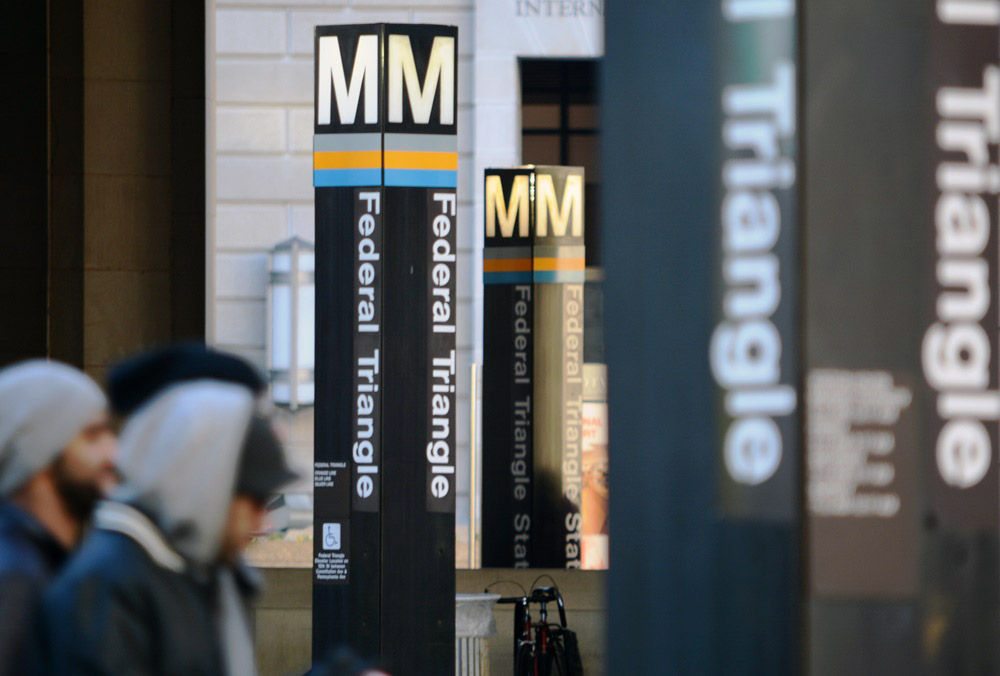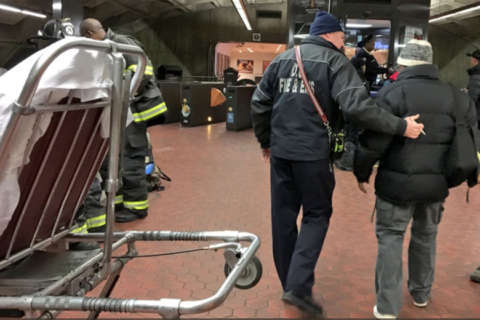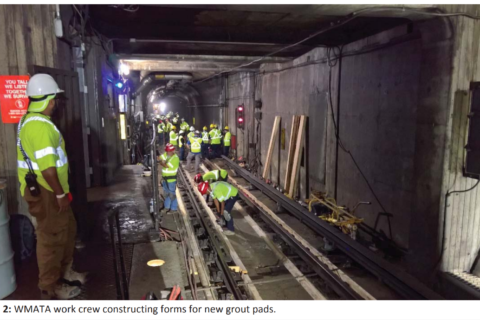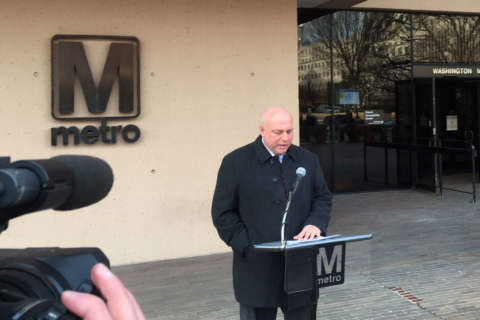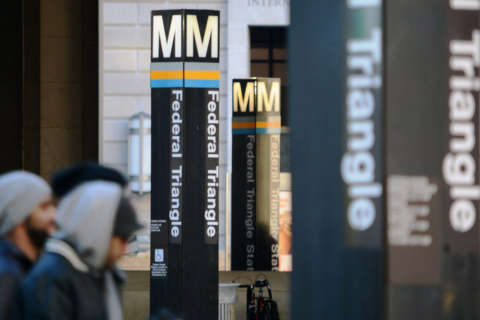
WASHINGTON — When a Metro train derailed Monday, radio communications were a problem. Now, the Federal Transit Administration has coincidentally sent Metro a new directive that finds most Metro workers have no idea where the known radio dead spots are across the system.
The directive also orders a series of changes including ensuring more complete testing of track work before trains run on it again, addressing potentially serious worker safety issues, and ensuring elevator and escalator workers follow regular maintenance rules and requirements to prevent safety issues for riders or workers.
Among the findings:
- “Frontline personnel are largely unaware of maps showing radio dead spots in the Metrorail system.” To address the problem, Metro must issue an agency-wide bulletin explaining that the maps exist and how to access and read the radio.
- Metro’s safety department does not approve daily testing plans of track work or automatic train control maintenance before train service begins through the area where that work has been done.
- Elevator and escalator Division workers do not consistently follow preventive maintenance procedures and requirements to keep the systems up and running, and do not consistently comply with safety rules. As a required action, “WMATA must conduct an analysis of the Division of Elevator/escalator Services’ safety rules and requirements to ensure the safety of the public and their technicians.”
- Metro worker protection manuals “provide inconsistent … information” about policies and procedures, and Metro Transit Police do not get specific training on their unique duties and exemptions.
- Worker protection instructors lack on-the-job experience, a worker protection committee lacks procedures to change safety rules, and worker safety checklists, reviews and audits are sometimes ignored.
- Training materials are not always updated quickly to reflect new orders or worker safety rule changes, and there is no easily accessible location where all worker protection rules and documentation can be found.
- Metro mechanics do not consistently ensure a train is secured before working around it on the tracks.
- Metro does not consistently implement drug and alcohol testing after accidents or hold to safety restrictions on how long individual workers’, such as train operators, shifts can be.
- Metro does not consistently implement its Safety Measurement System meant to track Metrorail incidents.
The issues were actually identified in recent reviews by the toothless organization that had been in charge of Metro safety oversight until federal inspectors took over in 2015, but the FTA issued the directive Friday since it has more authority to order the 24 required actions based on 21 specific findings.
The Tri-State Oversight Committee has continued to operate alongside the Federal Transit Administration since October 2015, including regular triennial reviews of key parts of Metro’s operations that have been done between January 2015 and July 2017 with some participation by the FTA oversight team.
The FTA culled through the reports’ 227 findings to identify new required actions and separate out a series of other issues to recommend reviews since they do not necessarily violate standards, but might be areas for improvements.
Fifty-eight percent of the findings are being addressed already due to previous FTA findings, 13 percent will be addressed through FTA inspections, 12 percent are safety issues that are addressed as recommendations and 10 percent are described as required actions in the new directive.
Some of the findings are already being addressed, but Metro has 60 days to describe corrective action plans for those that have not been dealt with.
“We appreciate FTA’s acknowledgment that Metro is making progress on addressing previous findings and recommendations, and will continue to work collaboratively with FTA to improve safety,” Metro spokesperson Sherri Ly said in an email.
Separately, the region continues to work to set up the long-promised Metro Safety Commission that will take back oversight from the FTA as soon as this year once staff are hired and the organization is federally certified.
The FTA emphasized Friday’s directive is not specifically in response to Monday’s derailment when three cars of a 7000 Series train derailed and ground along a concrete wall for 1,200 feet between Farragut North and Metro Center.
Radio system failures meant the train operator could not communicate with the Rail Operations Control Center, and the initial report was incorrectly a smoke-related problem given the dust kicked up and created by the derailment.
It took 27 minutes for Metro to identify the problem as a derailment, and third rail power was not immediately cut off.
The 63 people on the train were eventually walked down the tracks to Metro Center.
Read a PDF of the new safety directive.

